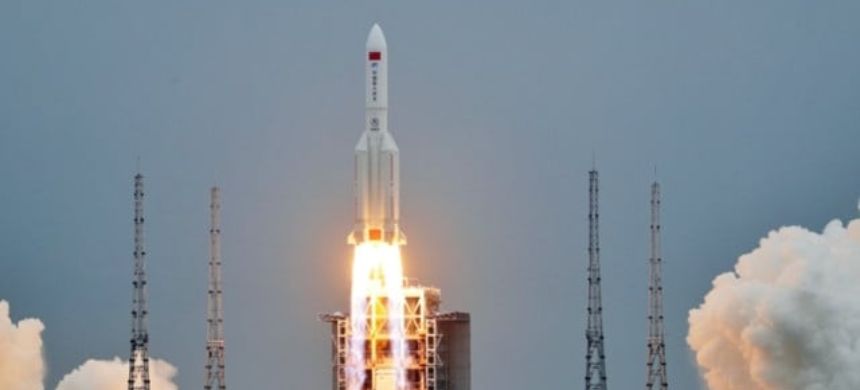On Thursday, China’s private aerospace company i-Space experienced a setback with the launch of its Hyperbola-1 rocket, as reported by the official Xinhua news agency. The launch, conducted at the Jiuquan Satellite Launch Center, encountered failure due to an abnormal flight path. Xinhua noted that investigations into the cause of the failure are ongoing, although specific details about the abnormal flight were not provided.
In contrast, a recent success for China’s space endeavors was the debut flight of the Long March-6C carrier rocket on May 7. This mission, conducted from the Taiyuan Satellite Launch Center in Shanxi Province, successfully placed four satellites into their designated orbits. These satellites included Neptune-01, Smart-1C, a wide-band optical satellite, and a high-resolution video satellite.
Also Read: China Reaches Milestone with Reusable Carrier Rocket’s First 10-km VTOL Test
Developed by the Shanghai Academy of Spaceflight Technology (SAST), the Long March-6C rocket represents a new generation of liquid carrier rockets designed to cater to the future commercial launch market. It features a first stage with a diameter of 3.35 meters powered by two liquid oxygen kerosene engines generating 120 tonnes of thrust. The second stage, with a diameter of 2.9 meters, is propelled by a liquid oxygen kerosene engine producing 18 tonnes of thrust.
This recent event highlights both the progress and challenges in China’s rapidly advancing space industry, showcasing efforts in both private and state-backed sectors to expand capabilities and explore commercial opportunities in space exploration and satellite deployment.











